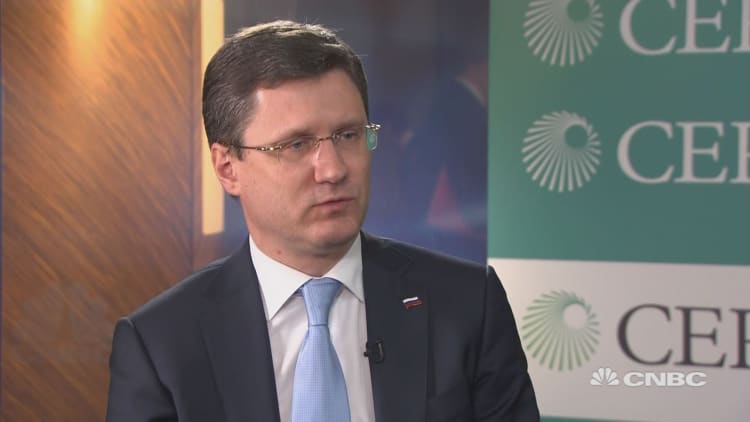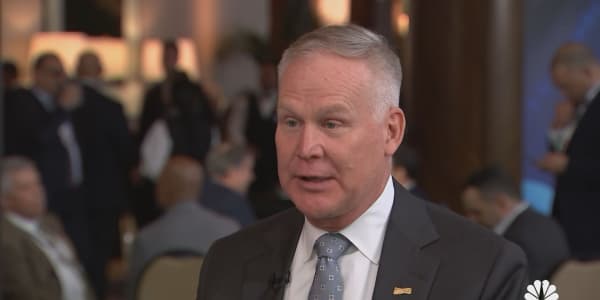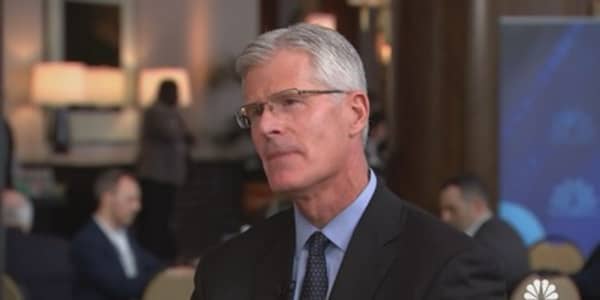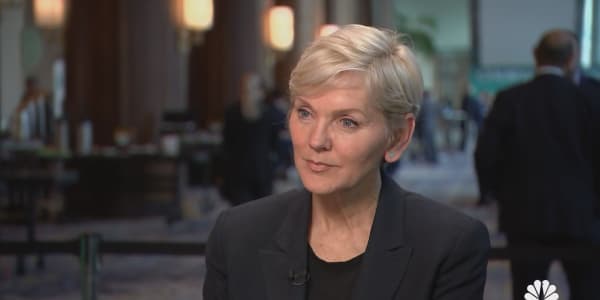
Russian Energy Minister Alexander Novak says Russia did not meddle in the recent U.S. election.
Speaking to CNBC at CERAWeek by IHS Markit in Houston, Novak said, "We did not interfere in U.S. domestic politics and we prefer that every country be independent in resolving its domestic issues."
In the wake of OPEC's output cut, Novak also talked about Russia's cooperation in the process, calling the coordination between OPEC and Non-OPEC producers historic.
"This was indeed an historic event, I mean the agreement which was signed between OPEC and non-OPEC countries, it's the first time in history...in compliance with the agreement that was reached, we are going to achieve the 300,000 result at a fast pace," he said.
But all cuts are not created equal. OPEC cut more than a million barrels a day, compared to what Novak concedes for the Russians. And the Saudis bore the brunt of the cuts: Their production reduced to 9.85 million barrels a day in February, according to Platts, while Russia's production is over 10 million barrels per day, making it now the world's largest producer. This, however, was not the goal according to Novak.
"We had to take a certain monthly level as a base, so we acted on that base that our targets will be met as far as the October 2016 level is concerned. In terms of doing everything we need to do to stay the top producer of oil production in the world, this is not something that we are trying to achieve."
When asked if he was worried about U.S. shale producers ramping production and eclipsing the recent international cuts, Novak said, "Undoubtedly the joint action by many countries to achieve the balance and to reduce the output are aimed at giving stability to the market and as a result we see a great level of investment, lower volatility, prices stabilizing at a certain level, which does play out to move investment going into shale production so one needs to assess the overall supply and demand balance."
With respect to that balance, Novak said he thinks it has been achieved — at least temporarily.
"I believe that currently we have a supply and demand balance, I mean for this winter period, but for the future we need to see how the situation will evolve in terms of the demand growth and how the production picture moves along in other countries, so we will need to assess the supply-demand balance and its dynamics."




